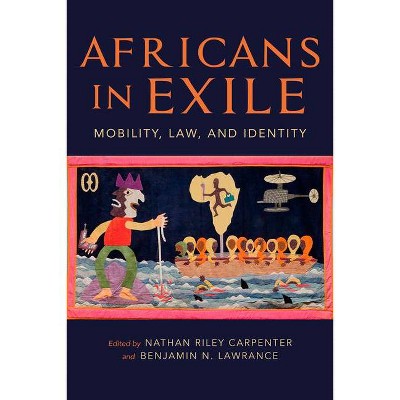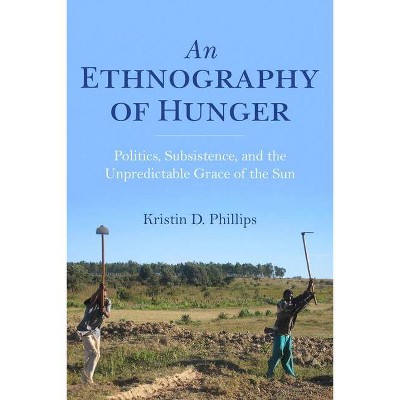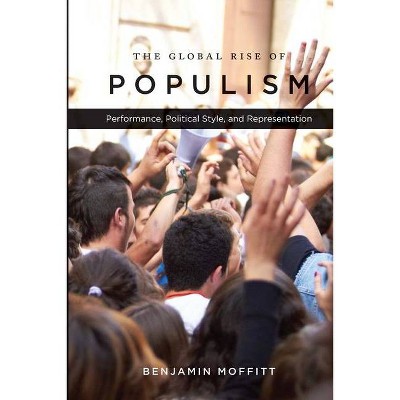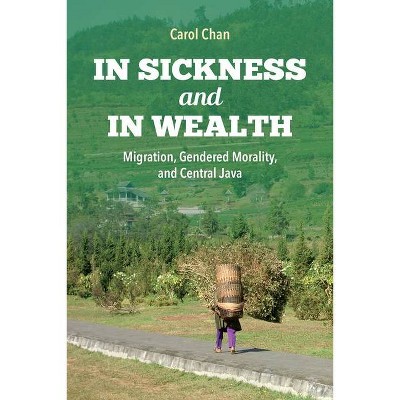Africans in Exile - (Framing the Global) by Benjamin N Lawrance & Nathan Riley Carpenter (Paperback)

Similar Products
Products of same category from the store
AllProduct info
<p/><br></br><p><b> About the Book </b></p></br></br><p>1. The essays included within this book present the experiences of political exile as fundamental to an understanding of colonial and post-colonial oppression and the history of state power in Africa. They take a broad, global look at the complexity of the experience of exile and the lasting effects it has had on the African people. </p> <p>2. The topics presented in this book are important because they offer a new way of understanding the experience of African exile and diaspora. This, coupled with the book's arrangement and language style, which is aimed at use in the classroom, means that the collection could have a tremendous impact on the way scholars in future generations engage with the topic. </p> <p>3. This collection offers an exciting breadth of research in the range of topics and time periods covered and in the regions under consideration.</p></p><p/><br></br><p><b> Book Synopsis </b></p></br></br><p>The enforced removal of individuals has long been a political tool used by African states to create generations of asylum seekers, refugees, and fugitives. Historians often present such political exile as a potentially transformative experience for resilient individuals, but this reading singles the exile out as having an exceptional experience. This collection seeks to broaden that understanding within the global political landscape by considering the complexity of the experience of exile and the lasting effects it has had on African peoples. The works collected in this volume seek to recover the diversity of exile experiences across the continent. This corpus of testimonials and documents is presented as an "archive" that provides evidence of a larger, shared experience of persecution and violence. This consideration reads exiles from African colonies and nations as active participants within, rather than simply as victims of, the larger global diaspora. In this way, exile is understood as a way of asserting political dissidence and anti-imperial strategies. Broken into three distinct parts, the volume considers legal issues, geography as a strategy of anti-colonial resistance, and memory and performative understandings of exile. The experiences of political exile are presented as fundamental to an understanding of colonial and post-colonial oppression and the history of state power in Africa.</p><p/><br></br><p><b> Review Quotes </b></p></br></br><br><p>This book contributes significantly to African Studies as a field and will be essential reading for anyone seeking to better understand exile as a diverse yet defining feature of our age.</p>--Christian A Williams - University of the Free State Bloemfontein, South Africa "African Studies Review"<br><br><p>Overall, <i>Africans in Exile </i>provides an abundance of well-researched, engaging studies thatcomplicate the notion of exile and push the boundaries of the archive in ways that will be particularly useful to scholars of colonial Africa.</p>-- "H-Africa"<br><br><p>Overall, <i>Africans in Exile</i> provides an abundance of well-researched, engaging studies that complicate the notion of exile and push the boundaries of the archive in ways that will be particularly useful to scholars of colonial Africa.</p><br><p/><br></br><p><b> About the Author </b></p></br></br><p>Nathan Riley Carpenter directs the Center for Global Education at Northampton Community College in Bethlehem, PA. Benjamin N. Lawrance is Professor of History at the University of Arizona and Editor-in-Chief of the <i>African Studies Review</i>. He is the author of <i>Amistad's Orphans: An Atlantic Story of Children, Slavery, and Smuggling.</i></p>
Price History
Price Archive shows prices from various stores, lets you see history and find the cheapest. There is no actual sale on the website. For all support, inquiry and suggestion messagescommunication@pricearchive.us


















